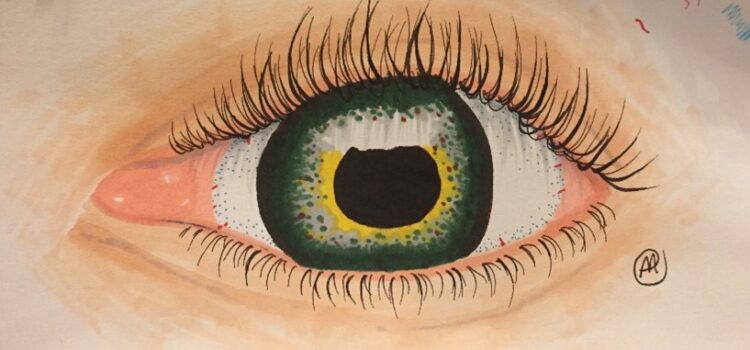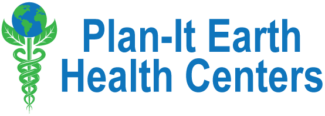
The Eyes Have It
Blue Light
Did you know that blue light has both advantages AND disadvantages? I know! We seem to always hear about how bad it is, but it has some benefits, too. And, it’s everywhere. It’s not just being emitted from electronic devices with screens. Actually, the sun is our main source of blue light. Our devices emit only a fraction of what the sum emits, but we spend much more time with our devices and we are in much closer proximity to them than the sun. That is why the blue light from devices has become such a problem. And that is why they are potentially such a danger to our eyes and our vision. We just don’t know the long-term effects of all the screen time we are experiencing. The danger to the eyes regarding blue light is the eye’s inability to block the blue light from reaching the retina. Our eyes are well able to block other UV light, and a good pair of sunglasses will catch virtually all of it. But our eyes do not block much of the blue light as it penetrates the cornea and the lens to reach the retina. The danger in this is that the light-sensitive cells in the retina can become damaged. This leads to changes that are similar to macular degeneration which causes vision loss. It is unclear how much blue light is too much.
Blue light also leads to digital eye strain which can cause general eye symptoms such as watering, dryness from not blinking enough, and headaches. Wearing yellow-tinted glasses while using a digital screen will help reduce this strain.
Remember, not all blue light is bad. The sun emits blue light. When we don’t get enough of it, we are susceptible to seasonal affective disorder (SAD). In fact, SAD is treated with light therapy that includes significant amounts of blue light. The proper amount of blue light boosts alertness, elevates mood, and improves brain function. (1)
Macular Issues
Macular issues arise when the macula, the small area in the center of the retina at the back of the eye, begins to deteriorate. This condition typically affects people over the age of 65, but not always. It affects central vision meaning that it becomes difficult to see whatever is being looked at directly. This deterioration does not affect peripheral vision, so it does not cause complete vision loss.
Macular deterioration tends to run in families. While there is no known way to prevent macula issues, there are a few things you can keep in mind that may help reduce your chances of developing it (especially if there is a familial tendency toward it in your family): Eat a healthy diet, maintain a healthy weight, don’t smoke, and get plenty of exercise. In addition, a 2001 study found that the following vitamins can be helpful to prevent this condition: vitamin C, vitamin E, zinc, beta carotene, and copper. (5)
Allergy Eyes
For those who suffer from allergies, you know the eye symptoms without having to read about them. For those of you who don’t have allergies, realize how blessed you are and try to sympathize with your suffering loved ones. And maybe you can encourage them to give something natural a try this allergy season. Often, the natural treatments work just as well, if not better, than their chemical counterparts and without dangerous side effects. Anyway, eye allergy symptoms can include watery eyes, itching, puffiness and swelling, or a feeling of heaviness in the lids. Any eye discomfort also has the potential of leading to headaches. Headaches = no fun.
Supplements for Eyes
- An herb called eyebright (euphrasia officinalis) has been used for many years to promote eye health. A test-tube study showed that eye drops containing eyebright along with chamomile (matricaria chamomilla) can help protect the cornea from inflammation and damage from the sun and other types of irritation. (2) In fact, the homeopathic version of eyebright, euphrasia, is well-known to soothe eye maladies when taken orally or as an ingredient in eye drops. It may help to also note that eye drops containing euphrasia are soothing for eye allergies, too.
- Lutein is a carotenoid (a plant pigment) with reported anti-inflammatory properties. The foods with the highest concentration of lutein are dark, leafy green vegetables. There is a lot of evidence that shows that lutein has several beneficial effects, especially on eye health. In particular, lutein is thought to improve or possibly even prevent age-related macular disease which is the leading cause of blindness and vision impairment. (3)
- Zeaxanthin could be called a close cousin to lutein. It, also,is a carotenoid that has been shown to protect the eye from light damage, free radical damage, and macular breakdown. The macula of the eye contains zeaxanthin but so do quite a few foods: egg yolks, orange fruits, yellow fruits, and dark green vegetables. Zeaxanthin gives some of these foods a yellow hue and the center of the macula that contains it is also yellow. Zeaxanthin is often used in tandem with lutein. (4)
As you may have gathered, eye health, like health in general, can be enhanced by proper diet, rest, exercise, and hydration. And, if you want to take it up a notch, you can check out the various natural supplement options to address any concerns you have both now and for the future.
Sources:
- 7 blue light facts: How blue light affects your eyes – All About Vision
- Pharmacological activities of an eye drop containing Matricaria chamomilla and Euphrasia officinalis extracts in UVB-induced oxidative stress and inflammation of human corneal cells – PubMed (nih.gov)
- The Effect of Lutein on Eye and Extra-Eye Health – PubMed (nih.gov)
- Zeaxanthin | C40H56O2 – PubChem (nih.gov)
- AREDS/AREDS2 Clinical Trials | National Eye Institute (nih.gov)
The information provided here is for educational purposes only. None of the research or evidence presented here is intended as a substitute for consulting an appropriate healthcare professional. These statements have not been evaluated by the Food and Drug Administration. The products offered here are not intended to diagnose, treat, cure, or prevent any disease. If you believe that you may have a disease condition, please consult your healthcare practitioner before using this or any other dietary supplement.
